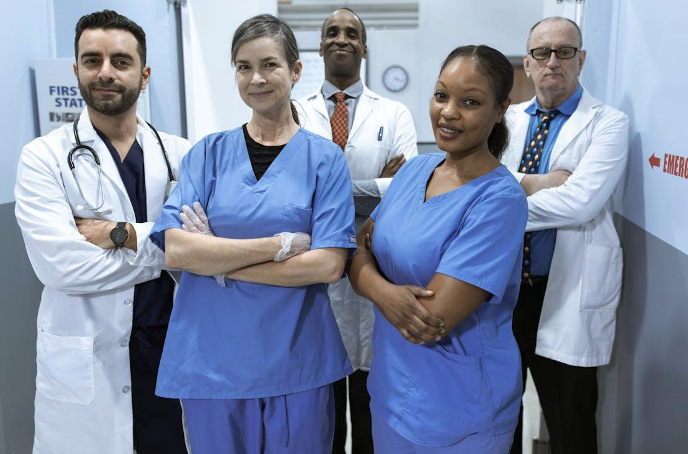
Local healthcare workers require diverse skills to provide safe and effective care. Beyond medical expertise, they must master things like communication, organization, and technology. These abilities enable professionals to adapt in fast-paced environments while meeting patient needs.
Understanding these vital skills highlights what it takes to excel in this challenging but rewarding field of work.
Healthcare workers in local settings like hospitals, acute care facilities, and clinics (such as orthopedic physical therapy clinics) need technical skills that are tailored to their specific roles.
These are learned abilities, often gained through education or training programs, that help a variety of local healthcare professionals carry out tasks safely and effectively.
Here are just a few examples of critical technical skills that are required.
In New Jersey, healthcare professionals who follow a phlebotomy career path, which can be achieved by completing a medical assistant training program, must master several important techniques. This includes venipuncture, capillary sampling, and handling biological samples safely, because avoiding contamination or patient discomfort is a necessity.
This role demands expertise in operating lab equipment like microscopes and analyzers, preparing specimens accurately, and following detailed testing protocols to ensure valid results.
Nurses require the ability to place IV lines correctly, administer medications based on strict dosage calculations, and monitor vital signs consistently using digital devices or manual tools like stethoscopes.
Proficiency with X-ray machines or MRI scanners is key here, alongside proper positioning of patients for imaging clarity while minimizing exposure risks.
These professionals handle ventilators confidently during emergencies, manage oxygen delivery systems, and perform lung function tests effectively with specialized devices.
Now, let’s look at the skills that are required by all kinds of local healthcare workers…
Effective communication is essential for healthcare workers in every role.
They must clearly explain diagnoses, procedures, or instructions to patients who may feel anxious or confused.
Strong listening skills help professionals understand patient concerns fully and provide reassurance.
Within teams, clear verbal and written communication ensures seamless coordination during treatments or emergencies.
Miscommunication can lead to mistakes in care delivery.
With strong interpersonal dialogue skills, healthcare workers build trust and improve outcomes for both individuals and their families alike.
Healthcare professionals juggle many tasks daily, from patient care to administrative duties. Effective time management ensures each responsibility gets proper attention without delays.
Scheduling skills help prioritize urgent needs, like attending emergencies or administering medications on time.
And managing downtime efficiently allows preparation for upcoming procedures or catching up on records.
In high-pressure settings, quick yet accurate decision-making is vital to stay organized under tight timelines.
These skills ensure smooth operations and the best possible care for every patient involved.
Healthcare workers frequently encounter complex challenges requiring swift, sound decisions. Whether diagnosing a condition or handling sudden complications during treatment, problem-solving skills are vital.
They must assess situations accurately, identify potential solutions quickly, and implement effective actions without hesitation.
These skills often rely on a deep understanding of medical knowledge combined with critical thinking under pressure.
With well-honed problem-solving abilities, professionals adapt to unpredictable scenarios confidently, ensuring patient safety and improving outcomes even when faced with urgent difficulties.
Accurate documentation is a cornerstone of quality healthcare. Professionals must record patient histories, treatments, and test results with precision to avoid errors. Even minor oversights can lead to incorrect diagnoses or treatment plans.
Healthcare workers need keen attention when updating medical charts, labeling samples, or entering data into electronic health records (EHRs).
They must also follow established protocols meticulously to meet legal and ethical standards.
Healthcare’s digital now, and you can’t slack. Electronic health records (EHRs) are key, so learn to update, retrieve, and manage patient data fast. Tech glitches happen, so troubleshooting on the fly keeps things moving!
It’s not just EHRs, either. You’ll use telemedicine for video calls with patients or monitoring devices to track vitals live. Bottom line: being tech-savvy isn’t optional. It keeps chaos in check, teams connected, and patients safe from delays.
So, if you’re considering becoming a healthcare professional, focus on universal skills as well as the technical skills you will learn on a training program. Mastering these skills will ensure success in the field and enhance patient care.